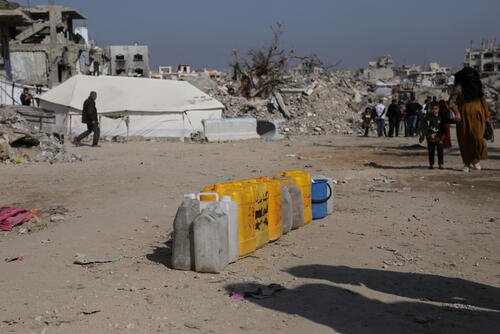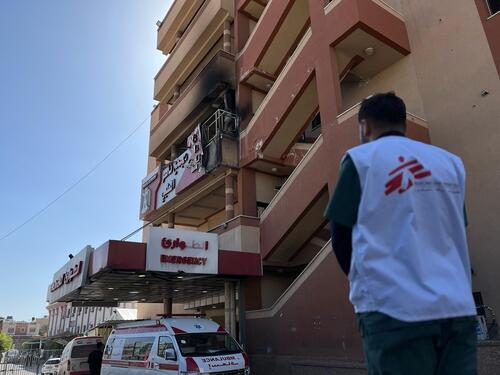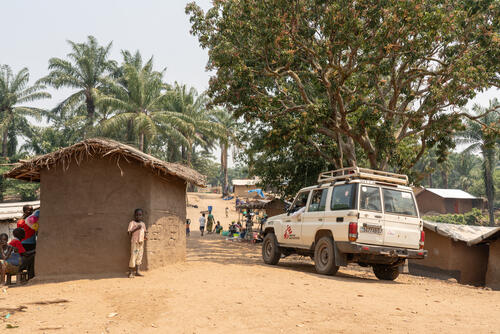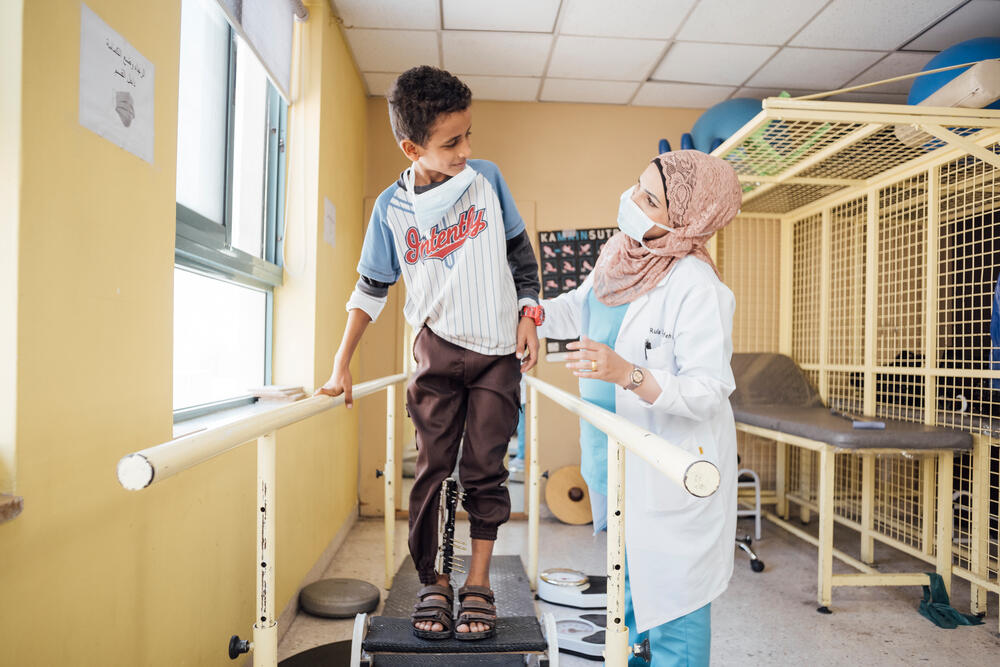Conflict and war
In conflicts and war zones, MSF does not take sides. We provide medical care based on needs alone and try to reach the people who need help most.
If warring parties see aid organisations as being on one side of a conflict, we are less likely to gain access to those in need and more likely to be attacked.
One of the ways in which we are able to demonstrate our independence to warring parties is to ensure that all our funding for work in conflicts comes from private individuals – we do not accept government grants.
Conflict and war: Key facts
35%
OF ALL MSF PROJECTS IN ARMED CONFLICT ZONES IN 2023
125,900
SURGICAL INTERVENTIONS BY MSF IN 2023
£110 million
MSF EXPENDITURE IN YEMEN IN 2023
Spotlight: Ukraine
How we respond to conflict
Conflicts, be they international wars or internal disputes, can have many consequences.
Fear of violence or persecution uproots entire communities and, for those who stay, many are often left without access to medical care.
Conflicts normally lead to a rise in trauma injuries, but also lead to problems for people needing normal medical care, such as for complications with pregnancy or chronic diseases such as diabetes.
Psychological distress and mental illnesses also generally rise. Sexual violence is sadly all too common in conflicts too.
We try to fill these gaps with highly experienced doctors, nurses and logisticians who provide specialised medical care and logistical support.
During times of intense violence, our teams often have to work with a great deal of flexibility and under intense pressure.
After October 2023, when the war in Gaza escalated following the 7 October attacks in Israel, MSF teams already working in Palestine were at the centre of rolling 'mass casualty' events as large numbers of people were caught up in intense and at times indiscriminate bombardments.
Our medical response has included emergency trauma care, surgical interventions, wound and burn care and important follow-up treatment such as physiotherapy and mental health support.
Healthcare itself has been under attack in Gaza.
Many MSF-supported hospitals have been hit by airstrikes or faced incursions by ground forces. Meanwhile, our staff and our patients have faced evacuation orders and direct violence.
As of August 2024, six MSF staff have lost their lives since the beginning of the Israel - Gaza War.
Working in a warzone can be an extremely frightening, stressful and disturbing experience. Because of this, we only allow highly trained and experienced staff who have volunteered themselves to work in such situations.
Paul McMaster, a British surgeon who has worked extensively with MSF, still finds high security missions challenging.
After returning from a mission in Syria where he treated the wounded in an operating theatre set up in a cave, he said: “I've worked in many difficult places with MSF – war zones like Sri Lanka, Ivory Coast and Somalia – but while in those countries it was dangerous on the ground, in Syria the danger always comes from the air.
“It’s a much more oppressive type of danger, having a helicopter hovering in the sky above you.”
Although we accept that it is impossible to exclude our staff from every form of risk, we do our utmost to manage them through our strict security measures.
Before starting a new project, and throughout its run, we are continually assessing risks. Each field mission has specific and detailed safety regulations in place, outlining strategies and specific security measures and responsibilities.
Among these regulations, MSF holds a strict ‘no-weapons’ policy in all of our clinics, vehicles and health centres. For the safety of our staff and patients, it is crucial that no armed people are in our hospitals.
Naturally, we will treat fighters who need medical help, whatever side they are on, but they and their colleagues must leave their weapons outside.
The presence of anyone who is armed heightens the chances of our facility becoming a target of violence.
Conflict: news and stories



